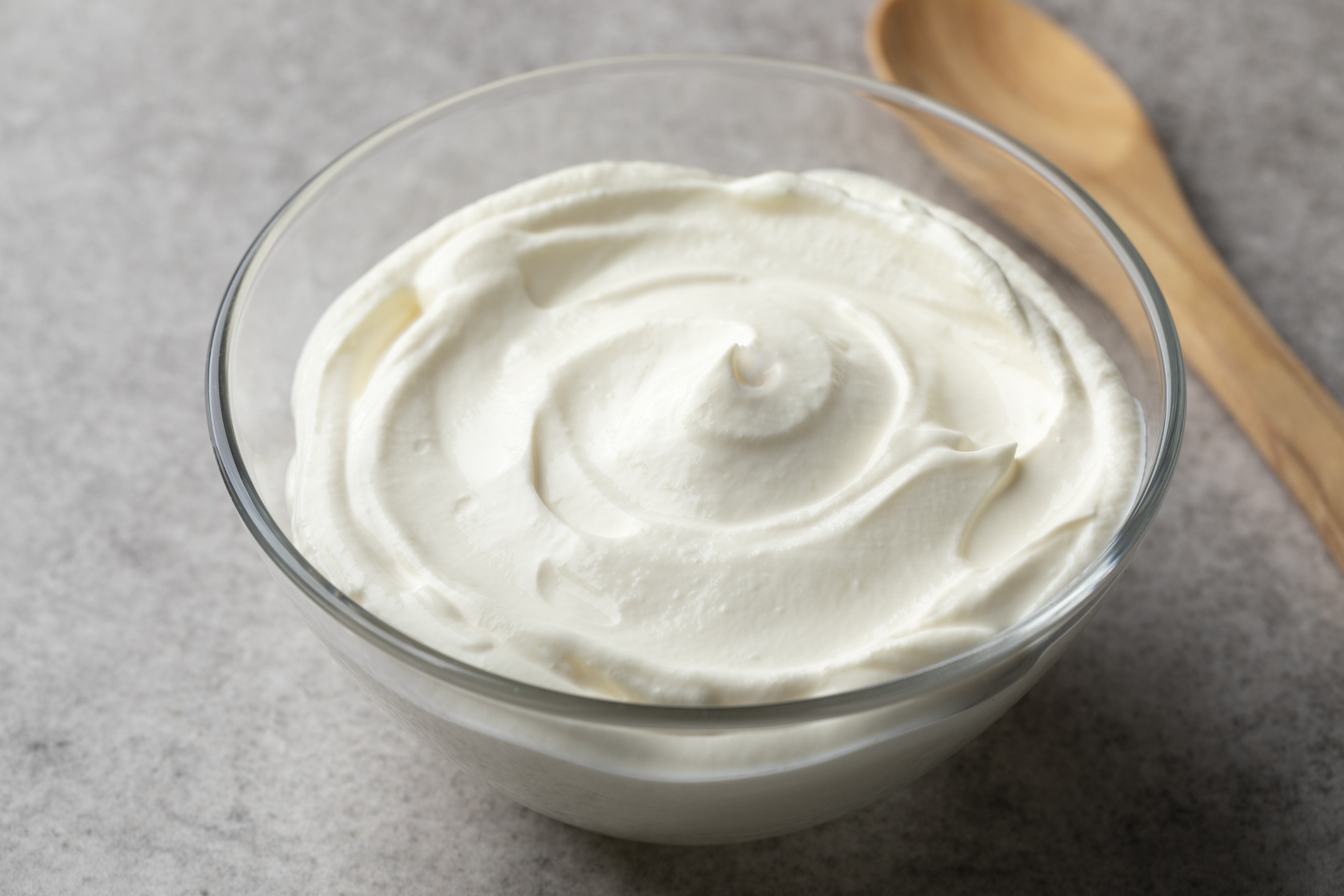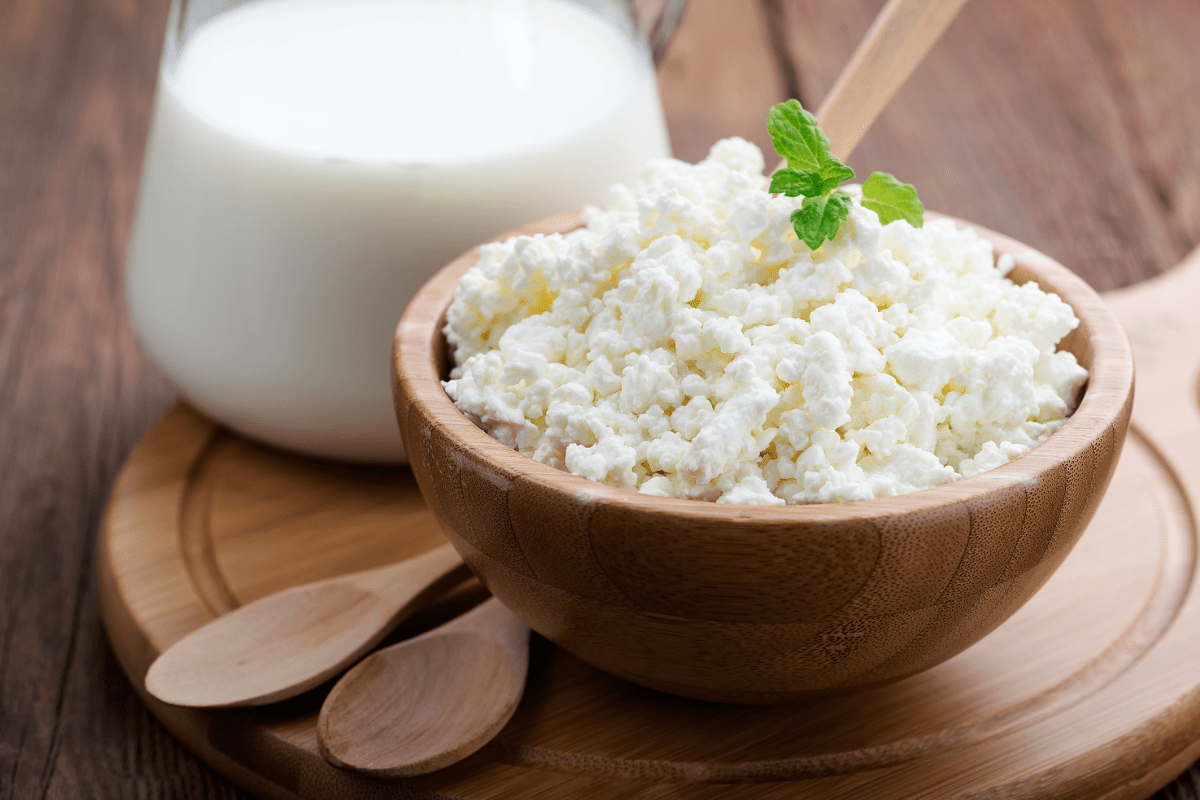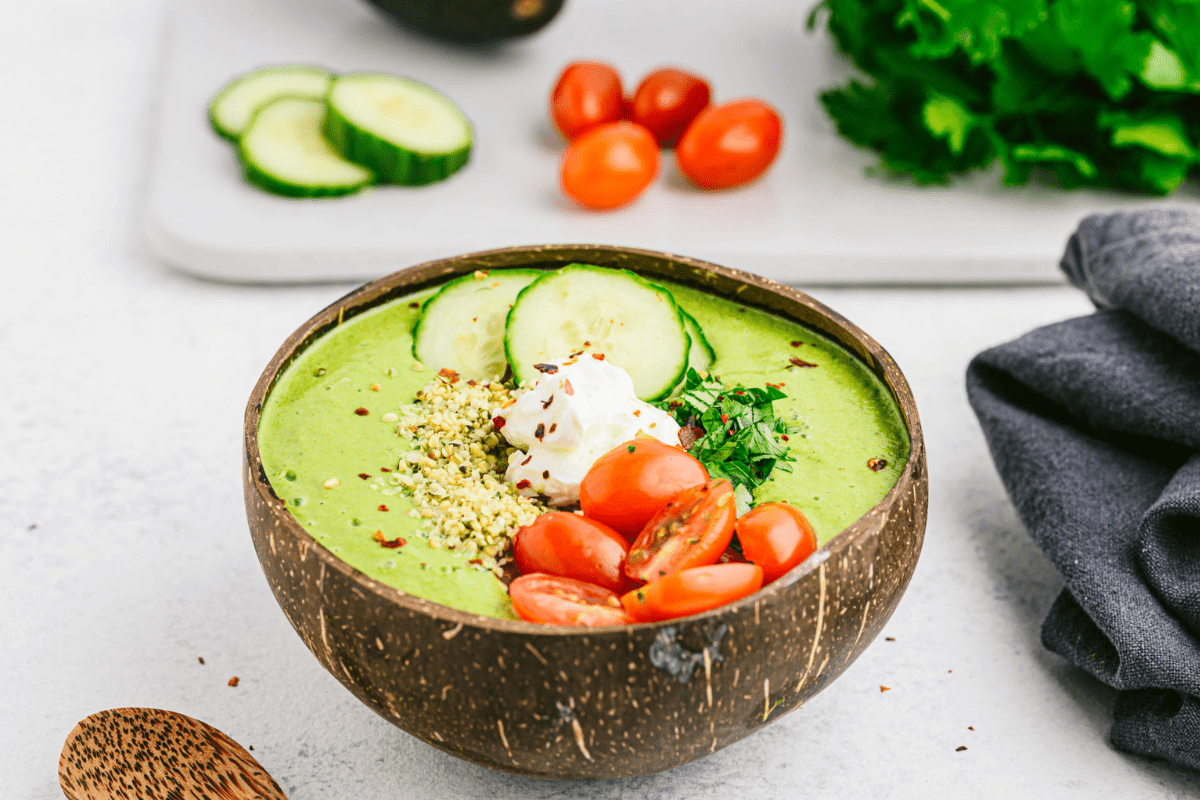In the world of superfoods, there’s one lesser-known gem that deserves a place in your family’s diet: kefir, pronounced KUH-FEAR.
This fermented dairy product has been enjoyed for centuries by Eastern Europeans and has been gaining popularity worldwide since the 1960’s, now trending among health-conscious millennials and parents.
What is Kefir?
Kefir is a cultured, fermented milk drink that has a similar consistency and texture to drinkable yogurt and offers a unique set of health benefits.
It’s made by introducing kefir grains, a combination of bacteria and yeast cultures, into milk, which then undergoes fermentation. The grains are fermented with milk anywhere from 12 to 24 hours.
During the process, two fermentations occur at the same time:
- Lactic Acid Fermentation (fermentation of lactose)
- Alcoholic Fermentation (fermentation of kefir grains from yeast)
The mixture is then strained to remove grains which results in a tangy, probiotic-rich almost smoothie-like beverage that’s loaded with essential nutrients.
Probiotic Powerhouse
One of the most significant health benefits of kefir is its impressive probiotic content.
Probiotics are beneficial bacteria that promote a healthy gut microbiome, which plays a crucial role in overall well-being. Kefir is known to contain a variety of probiotic strains, making it a potent tool in supporting digestive health. The exact number of probiotic strains in kefir can vary, as it depends on several factors including the specific kefir grains used and the fermentation process. Generally, kefir contains a diverse community of bacteria and yeasts and the number of strains can range depending on the batch.
A balanced gut microbiome can help boost the immune system, improve digestion, and even contribute to mental well-being. For parents, this can mean fewer sick days and happier tummies for your little ones.
Rich in Essential Nutrients
Kefir isn’t just about probiotics; it’s also packed with essential nutrients. It’s an excellent source of calcium, essential for building strong bones and teeth, and protein, which is crucial for growing children. Kefir also contains vitamin K2, known for its role in heart health and bone metabolism.
For parents who often juggle busy schedules, kefir can be a convenient and nutritious snack option. You can enjoy it on its own or incorporate it into smoothies, cereal, or salad dressings, making it an ideal addition to your daily routine.
1 cup of plain, low-fat kefir provides approximately:
- 100 calories
- 2.5 grams of total fat
- 9 grams of protein
- Calcium
- Potassium
- Vitamin A
- B-vitamins
- and more!
Lactose-Friendly Option
If your family includes members who are lactose intolerant or sensitive to dairy, there’s good news!
Kefir is often tolerated better than regular milk in those who are lactose intolerant due to the fermentation process. During fermentation, the bacteria and yeasts in kefir grains consume the lactose in milk as a food source. As a result, the lactose content in kefir is significantly reduced compared to unfermented milk.
This means that even many people with lactose issues can enjoy the benefits of kefir.
Kefir’s Potential Immune Support
Emerging research suggests that kefir may play a role in supporting the immune system. While more studies are needed, the probiotics and nutrients in kefir could potentially help protect your family against common infections and allergies, which is especially important for children exposed to various germs at school or daycare.
Some studies suggest that kefir may even have anti-inflammatory effects for the gut. Chronic inflammation in the gut is linked to various digestive disorders, and consuming anti-inflammatory foods can help mitigate these issues. While the internet has many people claiming that dairy foods contribute to inflammation, that is not true. In fact, research shows that just the opposite is true. Numerous studies show that dairy consumption is either anti-inflammatory or completely neutral.
Numerous studies show that dairy consumption is either anti-inflammatory or completely neutral. A 2021 review in the Journal of the American College of Nutrition, looked at 27 trials on the effect of milk, yogurt, and cheese on inflammatory markers and concluded that consuming dairy appears to have a neutral to beneficial effect on inflammatory markers.
This 2022 review in Cureus, Journal of Medical Science, explores the evidence from pre-clinical studies that suggests potential mechanisms by which kefir contributes to immune health. It concluded that because of the variability when it comes to the make up of kefir including type of grains used, recipes, and fermentation process, further studies are needed to close existing knowledge gaps and demonstrate a consistency of results.
Summary
Kefir is more than just a trendy health food, it’s a nutritional powerhouse that can benefit your entire family. Its probiotic-rich nature, nutrient content, lactose-friendly properties, and potential immune support make it a valuable addition to your grocery list.
So, next time you’re looking for a healthy and delicious snack or breakfast option, consider reaching for a glass of kefir. Your family’s health and taste buds will thank you!




